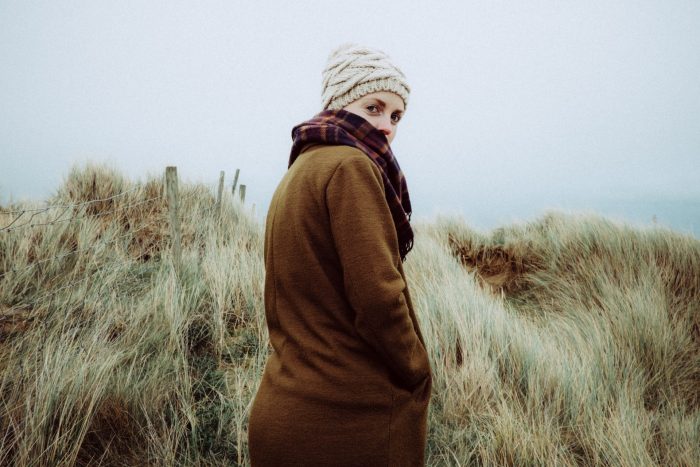The realization that I’ve been gently cooking in a dark night of the soul has been slowly dawning on me as I look around at the collective dark night of the soul happening in the world right now.
The dark night of the soul is a dying and becoming happening at the same time. It’s often triggered by a healing crisis, trauma, massive changes and transitions, death, losses, identity death, and even in spiritual awakenings.
It is the crossroads in the spiral of our evolution where we discover we must sacrifice something into the fire of life before we can pass the threshold and see what’s on the other side.
This kind of dying takes its own time.
We don’t ever get to know what it will look on the other side until a certain threshold of the soul is crossed as we individuate more and more into our original soul design.
The dark night is the dissolution. It’s a deep grieving and the underworld spaces where it doesn’t seem like there is much light going on.
Yet, the darkness is a kind of light.
One we have forgotten how to appreciate. It’s the kind of light that offers a warm embrace, fills us with soul nourishment and heart sustenance as we allow the mystery to weave its way with us through our tears, prayers, and dreams.
It’s a symbolic place lost in a culture that replaced the liminal with technology—where we space out on phones in line at the grocery store rather than contemplate the gifts the dream maker gave us in the night.
It’s a rich place, even though it’s painful.
It’s where we meet our mother wound, the place in us where we don’t quite know how to love and care for ourselves with the gentleness and compassionate awareness we all deeply desire and deserve.
It’s where we might reach to numb ourselves or use tools to try to get rid of it, fix, it or “transmute” the unacceptable sensations. We might try to vibrate our way out of it, or apply other methods that dishonor the true depth of what is happening here.
What is happening here?
The parts of our soul that want to be integrated are arising to be loved back into the folds of our hearts.
The visceral veil of our dreams is thinned so that we can commune with our unconscious realms more easily. We can learn the interior language of our own psyche.
It’s where we meet the doubt, anger, or fear we have in God, or the places we resist love because it feels dangerous to the identity we wrapped around our wounds.
It’s where we get stripped of our true selves.
Our skin is shed and our new layers gain strength again before we can reemerge.
There isn’t anything about it that needs to be fixed, only tended to.
Westernized, individualistic culture, and most of its spiritual communities, generally lack structure for dark nights of the soul.
Without these structures, without our elders to hold our hands and guide us, we come apart at the seams. We react in wildly opposite directions of what we think our patterns are, entrenching ourselves further in what longs to dissolve.
Our traumas, fears, and old griefs arise and instead of feeling held in it by our elders or spiritual leaders, we attack the “other,” feeling like we have to fight a battle every single day until a wishful day when the “other” will finally see the light.
This is what we have been taught—that we must fight anything “other,” even within ourselves, even if that “other” is our own divine process of dying into becoming.
A dark night of the soul, like the one I am in, perhaps you are in, that we are all in collectively, can ultimately be a liberating thing.
The paradox of it is that the more we fight it or push against it, the more pressure it puts on us and the longer it takes. Its deepest medicine is found in surrendering to it, to befriending the nourishing darkness.
Rest. Rest often. Listen to your body and take naps instead of drinking false energy. Sleep in when you can. Treat yourself like you were sick or wounded. You are being reconfigured and you deserve your deepest compassionate care.
Learn the language of your dreams. Write down your dreams, journey with them. Contemplate your dreams in your waking life. Study up or start some dream analysis or inner journey practice.
Nourish, nurture, and protect your sacred process. Feed yourself nourishing food, as much as you are hungry. Nurture yourself with things that leave you feeling better rather than depleted. Make time to be with your heart. To just be, to listen to your heart and your body, to move or write or paint or sing or stretch as you need to.
Spend time in nature, even if it’s grass in your backyard or touching a tree in the parking lot. Nature is an embodiment of the divine and when we are in a dark night, and we make contact with the natural world, she knows exactly what medicine and wisdom to transmit to us, whether we are conscious of it or not. Nature really supports healing.
Tune in to what kind of support you need. It may be that you need psychological assistance with the loops in your head, trauma that’s arisen, grief that wants to be witnessed and held, the patterns you want to unwind or help with your dreams.
Or, maybe you need spiritual support exploring how to heal your relationship with God and what kinds of practices can help you access this in ways that feel loving and supportive. Maybe it’s time to reconnect with sacred songs, ceremony, and ways to draw in the field of ancestral support around you to give you the strength and courage you need in this rebirthing journey.
Or, maybe you need both. I am finding this for myself and all my clients. It’s been such a deep time of grieving, ceremony, dream walking, processing, and simply witnessing space together in the mystery.
We are all in it right now.
The tension is thick. May we all find some gentleness in it toward ourselves and a little more kindness toward each other.
None of us have a map for how to deal with current times.
None of us.
More love.
Not less.
~









Read 2 comments and reply